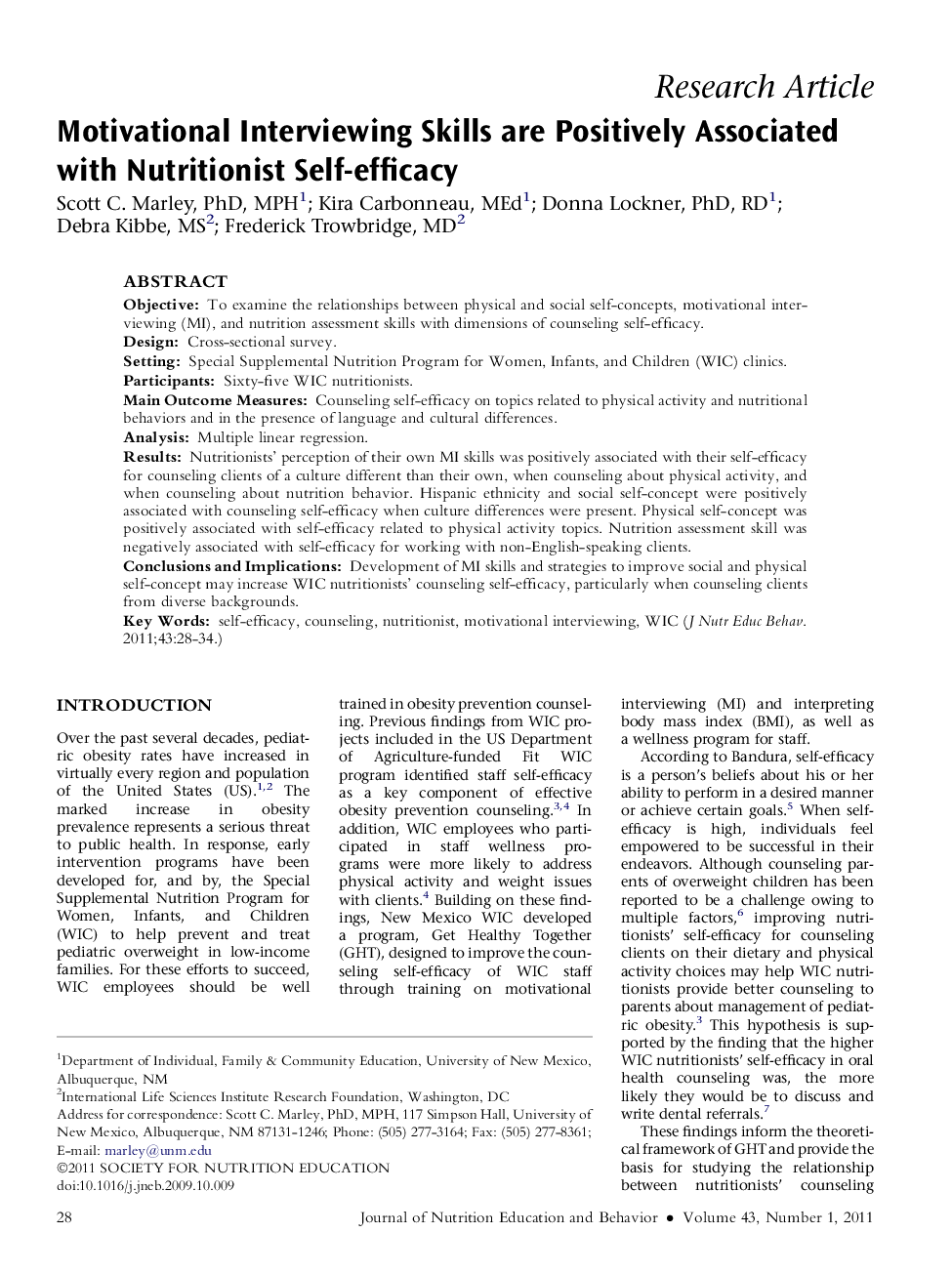| Article ID | Journal | Published Year | Pages | File Type |
|---|---|---|---|---|
| 362937 | Journal of Nutrition Education and Behavior | 2011 | 7 Pages |
ObjectiveTo examine the relationships between physical and social self-concepts, motivational interviewing (MI), and nutrition assessment skills with dimensions of counseling self-efficacy.DesignCross-sectional survey.SettingSpecial Supplemental Nutrition Program for Women, Infants, and Children (WIC) clinics.ParticipantsSixty-five WIC nutritionists.Main Outcome MeasuresCounseling self-efficacy on topics related to physical activity and nutritional behaviors and in the presence of language and cultural differences.AnalysisMultiple linear regression.ResultsNutritionists' perception of their own MI skills was positively associated with their self-efficacy for counseling clients of a culture different than their own, when counseling about physical activity, and when counseling about nutrition behavior. Hispanic ethnicity and social self-concept were positively associated with counseling self-efficacy when culture differences were present. Physical self-concept was positively associated with self-efficacy related to physical activity topics. Nutrition assessment skill was negatively associated with self-efficacy for working with non-English-speaking clients.Conclusions and ImplicationsDevelopment of MI skills and strategies to improve social and physical self-concept may increase WIC nutritionists' counseling self-efficacy, particularly when counseling clients from diverse backgrounds.
